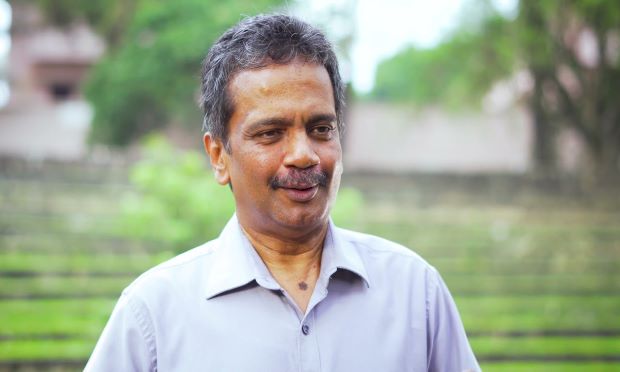Sacked scientist says organic push needs evidence-based path
COLOMBO – A top Sri Lanka agricultural scientist who was sacked for publicly raising concerns over a sudden agro-chemical ban said a change of course is needed to avoid a worsening crisis in agriculture which could undermine food security.
Professor Buddhi Marambe, 59, the top advisor on agriculture, was sacked from all his government positions after his criticism of the ban, the Agricultural ministry said in a statement on Tuesday (26).
“We have spoken based on science. Without going for evidence-based decisions, nothing will go right,” Marambe, who is also a senior professor at the agricultural faculty of the University of Peradeniya, said on Wednesday (27).
“Their push is on the correct path. But the modality they have planned could lead to a situation where you can’t think of a recovery,” he said, referring to the government’s overnight ban on chemical fertilizers.
He headed the advisory committee to formulate the national agricultural policy, which has been already submitted to the government.
President Gotabaya Rajapaksa in April banned all the chemical fertilizers, pesticides, and weedicides when the entire country was not ready to adapt only organic agriculture.
The administration has said chemicals were triggering non-communicable disease including kidney disease and the move would save around US$ 200 million spent on imports.
The head of Sri Lanka’s Government Medical Association (GMOA), an influential group in policy in recent years, has said that according to Pliny the Elder, a Roman author, ancient Sri Lankans lived for 140 years, when there were no agro-chemicals.
However, as farmers protests grew and scientists warned of a looming disaster, the government has relaxed a part of the fertilizer ban.
Some rural farmers have already decided not to cultivate Sri Lanka staple rice in the ongoing ‘Maha’ cultivation season because of the government failure to provide necessary fertilizers.
Marambe, a former Dean of Agriculture Faculty at University of Peradeniya had been warning in recent newspaper articles that an overnight shift to organic fertilizer could lead to crop declines that in turn cause huge food shortages within months.
He cautioned that a crop failure would force the government to import food at a time when money printing has created a forex shortage.
In an article titled “A tragedy of relying on misinformation”, he said Sri Lanka is likely to import a major portion of basic food needs, such as rice, adding to external woes and reducing domestic generation of value.
“If I don’t speak out, I will also be responsible for the decline in agriculture in the future,” Marambe said
“They need to correct the course immediately. Do not forget, food security is national security. We should never tolerate any action that negatively affects our food security.”
Sri Lanka in 2005 started subsidizing fertilizer as a vote-buying gimmick promoting over-use and blocking farmers from moving on to modern more efficient nutrient application and the use of micro-nutrients.
Agriculture officials have pointed out that fertilizer themselves are not poisonous but quality has to be controlled to make sure there are no contaminants and pesticide use is globally governed by standards on residues which are revised based on available evidence.
Sri Lanka has seen a gradual decline in evidenced based policy making, where, green papers, white papers, expert consultation and public consultation had been replaced by ‘policy-by-manifesto’ and special interests which are enforced by midnight gazette, critics have said.
-economynext.com


